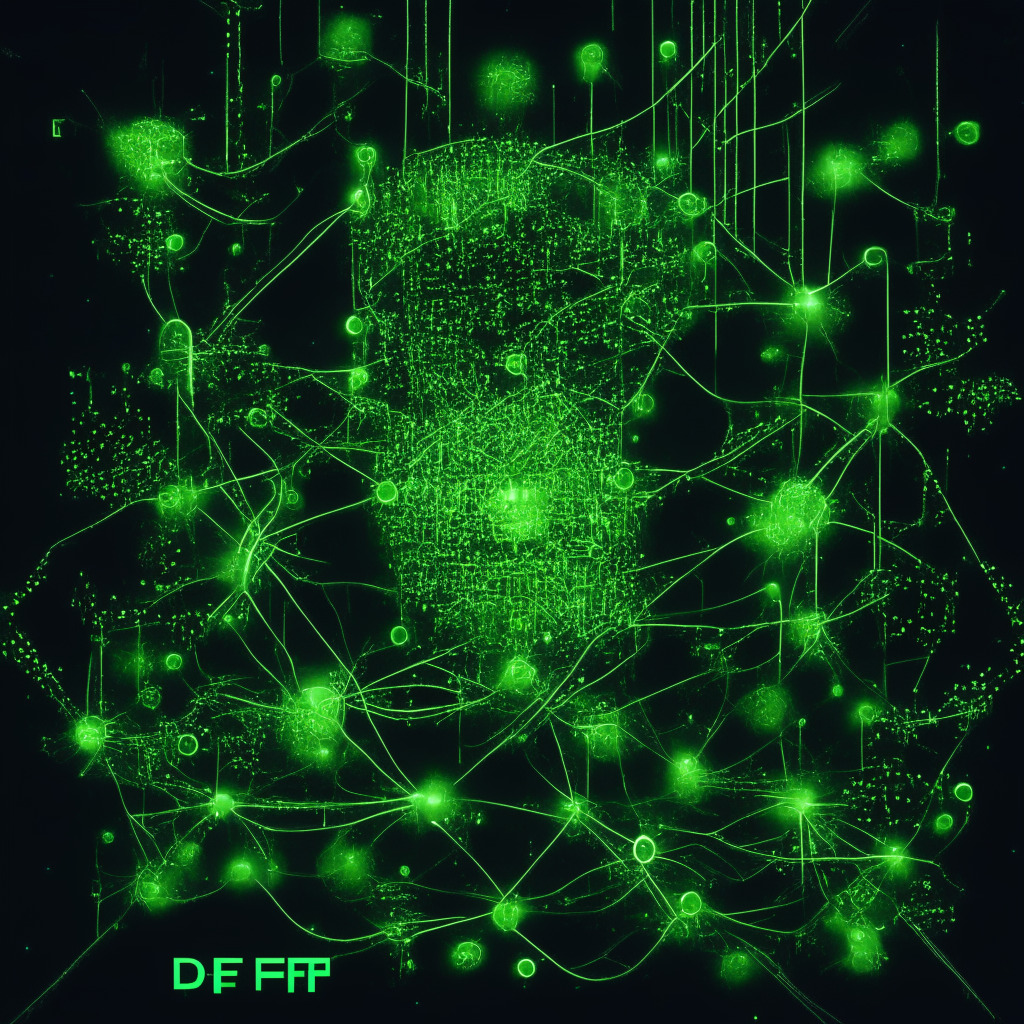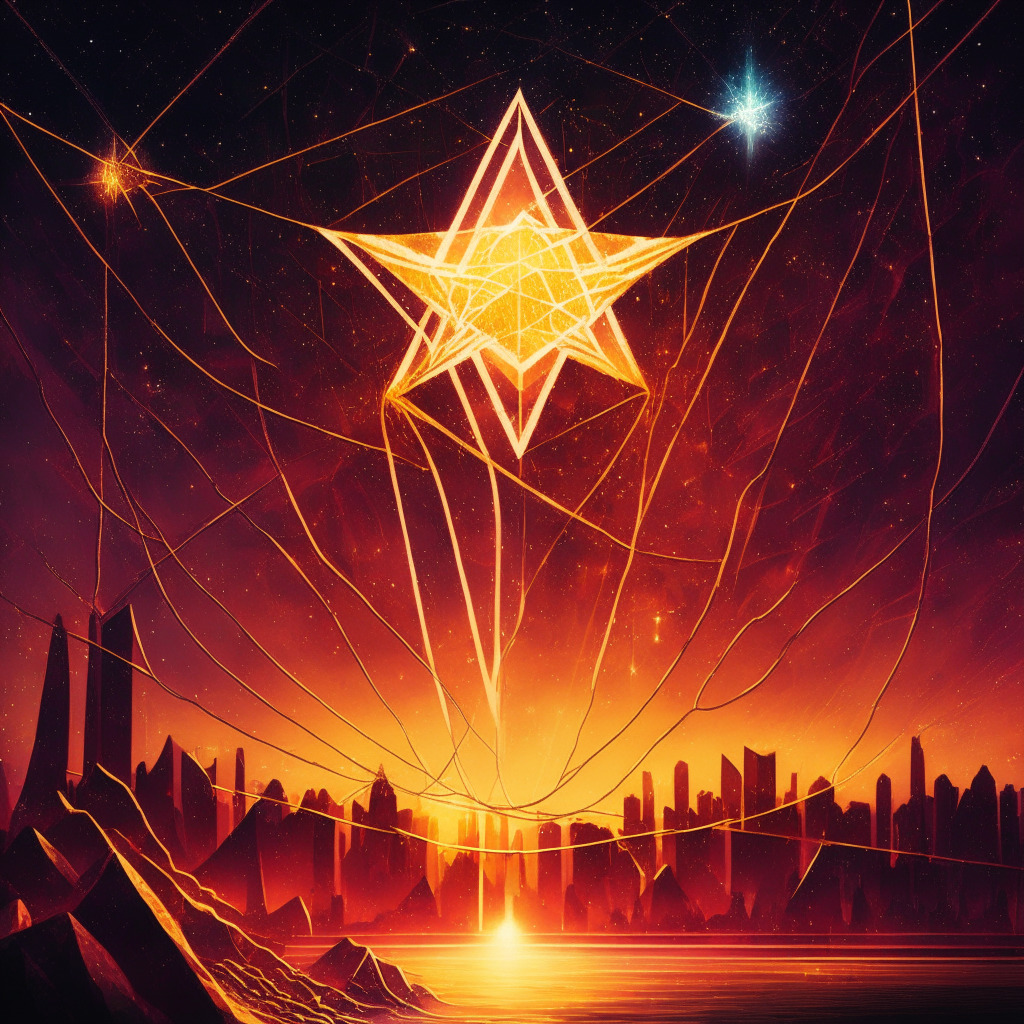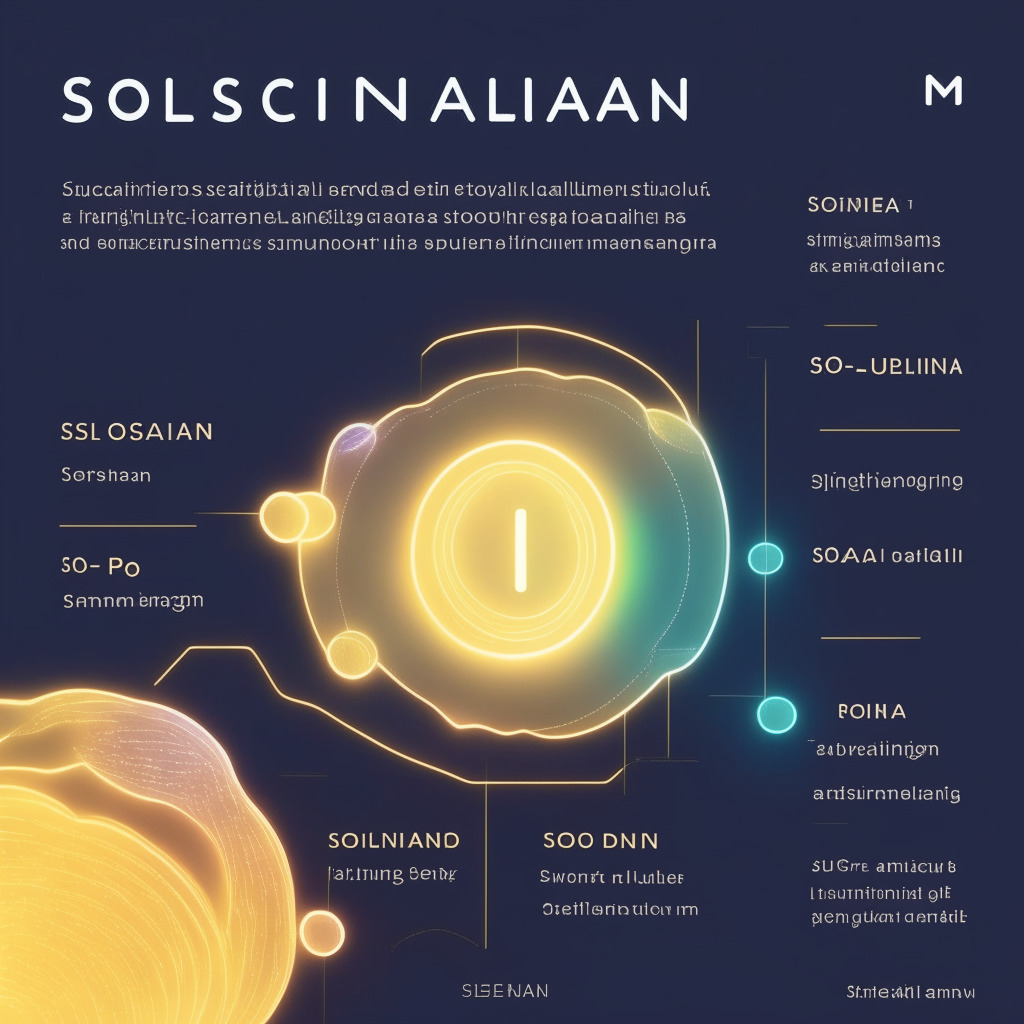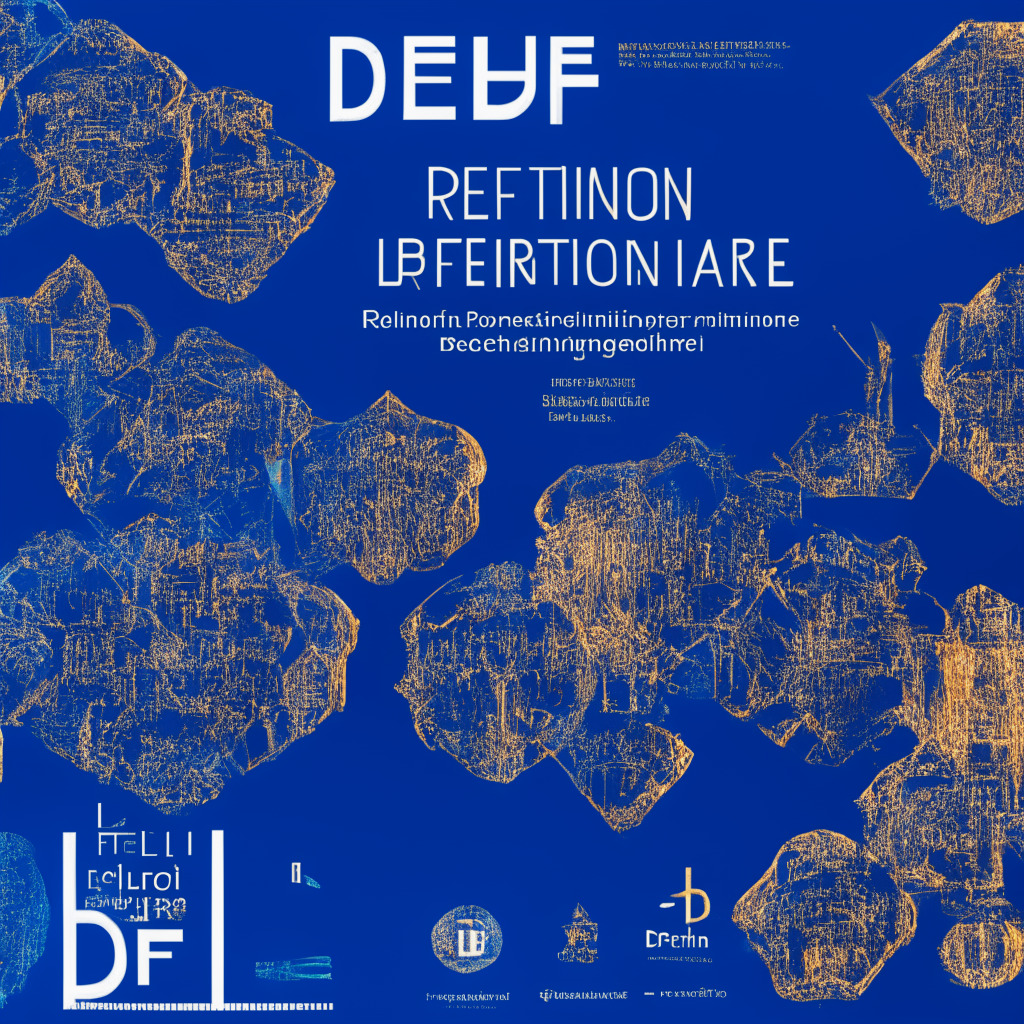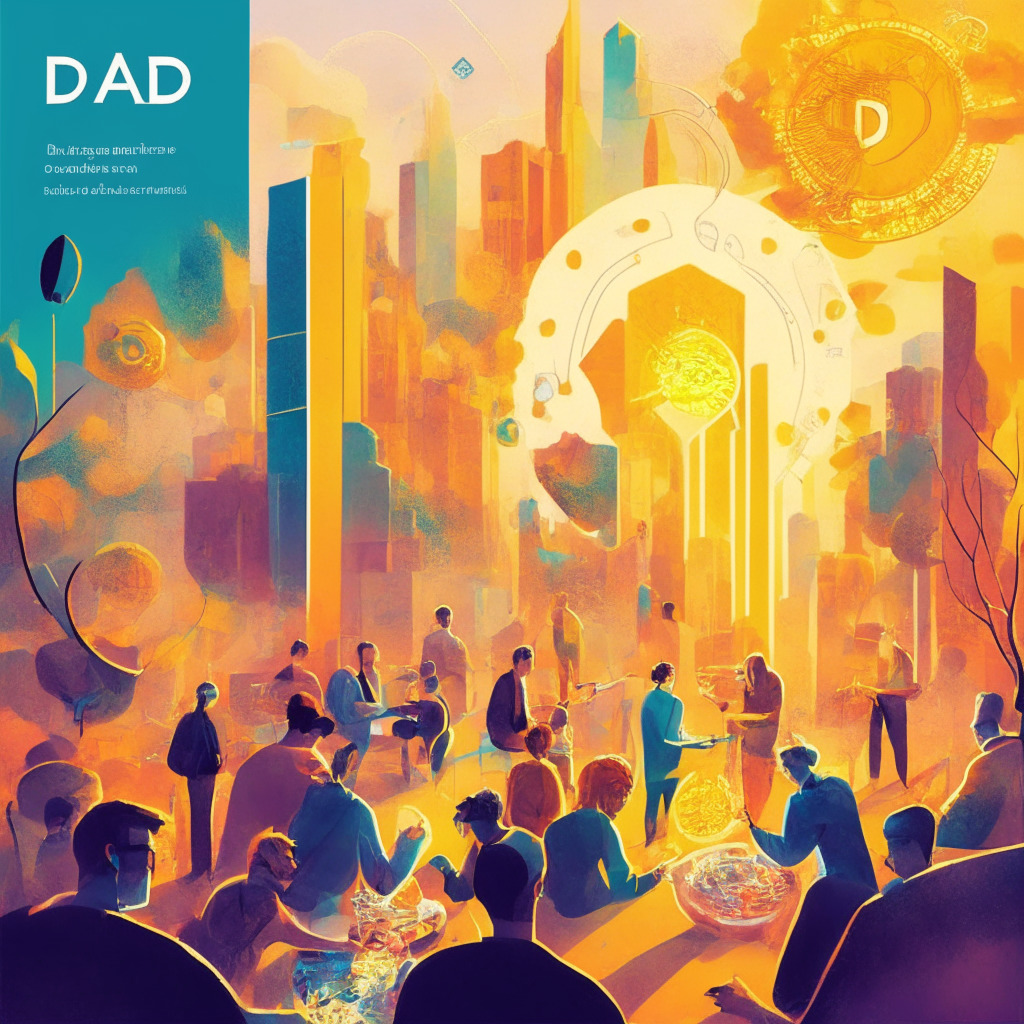The recent Longevity+DeSci Summit in New York introduced the concept of Decentralized Science (DeSci), conducted outside traditional academic frameworks. This innovation, particularly when blended with blockchain technology, could revolutionize longevity sciences and provide alternate funding to traditional NIH grants for biotech firms. However, this shift also raises ethical questions.
Search Results for: DAOs
Maple Finance’s $5 Million Expansion into the Asian Crypto Market: Innovation or Risk?
“Maple Finance, a blockchain-based credit marketplace, has revealed plans to expand into the Asian market, supported by a $5 million investment from firms including BlockTower Capital and Tioga Capital. This move forms part of a growth strategy to extend its technology and create global alliances, primarily within Singapore, Japan, Hong Kong, and Korea.”
Navigating the Future of Blockchain with AI: A Gate to Web3 or a Complex Tech Conundrum?
“Hive Blockchain shifts its focus to artificial intelligence as Hive Digital Technologies, while remaining committed to Bitcoin and crypto mining. The company envisions AI and blockchain jointly promoting the development of Web3, potentially enhancing user privacy and data ownership.”
Arbitrum’s Meteoric Rise and Airdrop Drama: A Tale of Blockchain Resilience and Risk
“In Q2 2023, Ethereum’s rollup, Arbitrum, faced a significant “sell-the-news” reaction after ARB airdrop caused a surge in user transactions. Despite an initial drop in ARB token’s price, there’s a steady rise in transactions, revealing increased organic engagement and Arbitrum’s potential in shaping the blockchain future.”
Balancing Act: Exploring ChatGPT’s Potential Risks and Benefits for Businesses
“IBM’s Jerry Cuomo highlights potential security risks in using AI-based models like ChatGPT by OpenAI, specifically the inability to control data once it enters the system. The lack of visibility into data use raises the risk of unintentional data leakage, intellectual property risks, and breaches of open-source agreements.”
Farewell to the Airdrop: Web3’s Future and the Ever-Evolving Landscape of Blockchain
“The Airdrop’s final voyage highlights the undeterred interest in the technological, economic, and cultural shifts towards a decentralized internet and creator economy. While coverage of NFTs, Metaverse, and DAOs decreases, the focus remains on innovative real-world blockchain applications and the future of the internet.”
Redefining Use Cases: The Journey from Crypto Assets to Digital Renaissance
“Crypto progression mirrors how Web2 revolutionized informational accessibility. Decentralized finance (DeFi) pioneers a banking industry catered towards Web3, poised for a crucial paradigm shift. DAOs echo small businesses fostering economic activity, with Humans and AI unified through fintech networks, hinting a digital renaissance. However, challenges persist and must be addressed.”
Unmasking Crypto’s Theatre of Absurd: Decentralization Illusion vs Real World Application
“Crypto appears to be an elaborate facade, with skepticism regarding the authenticity of use-cases. The recent market trends unveiled progress, while also revealing the failings of DeFi and Web3. Governance systems are under scrutiny, and real economic activity seems sidelined for speculation. However, a genuine decentralised future remains the goal.”
Navigating Blockchain: Innovations, Challenges, and the Intriguing Future of Cryptocurrency
“A telling report by Glassnode indicates that long-term crypto holders are showing tenacity, with Coinbase and Binance creating waves in the sector. Coinbase launched its Ethereum layer-2 blockchain, whereas Binance became the first fully licensed crypto exchange in El Salvador.”
Exploring Coinbase’s Onchain Summer: NFT Oversaturation vs Blockchain Mainstream Meld
Coinbase’s upcoming Onchain Summer, coinciding with the launch of its Layer 2 network, Base, aims to increase crypto accessibility via various activations within the Web3 space. The event showcases the intersection of blockchain with mainstream industries like Coca-Cola. However, concerns about value dilution of NFTs and its strategic boost for Base’s engagement are also signified.
Cryptocurrency Variance: Analyzing July’s Market Performances and Looming Prospects of Diverse Crypto Markets
“MakerDAO’s MKR advanced by a remarkable 47% in July, outpacing other Coindesk Market Index constituents. Ripple Labs’ XRP followed closely with a growth of 46.6%, linked to a U.S. Judge’s ruling. Contrastingly, Bitcoin and Ether each lost 4% in July, shedding light on the unpredictable volatility of cryptocurrencies.”
Navigating the Era of DeFi Micro-Primitives: Innovation or Complexity Overload?
“DeFi micro-primitives, a growing trend, represents more nuanced, decentralized & trustless DeFi protocols that are concurrently becoming complex. With inherent advantages and challenges, these micro-primitives hold potential to sculpt a DeFi landscape that’s refined, adaptable, programmer-friendly, and multifaceted.”
HashPort Bolsters Blockchain Operations with $8.5M Funding: Navigating Regulatory Hurdles and Ensuring Growth Potential
Japanese blockchain developer, HashPort, recently secured $8.5 million funding. The capital will be used to fortify its operations, compliance system, and team development amid evolving global regulations. HashPort’s operations include blockchain consulting and a public chain for nonfungible tokens (NFTs). Their cooperation with Expo 2025 aims to drive the development of digital wallets and digital passports linked to soulbound tokens.
Arbitrum’s Destiny Hangs in the Balance: Multi-Million Dollar Proposals for Asset Utilization Debate
Arbitrum community is currently weighing two significant governance proposals worth millions. If approved, ARB token holders will have the power to decide which programs receive funding, a major step towards decentralization. However, concerns over potential misallocation of assets and misuse of grant-making powers call for a balanced approach.
Stellar Lumens Rally and the Promise of BTC20: Pursuing Hopes or Courting Peril
Stellar Lumens (XLM) saw a 60% rise in July, supported by moving averages and bullish momentum indicators. However, the RSI index warns of overheating, suggesting a potential price correction. Meanwhile, the BTC20 token, leveraging Ethereum’s smart contracts, offers promising returns through a staking-to-earn mechanism and a sustainable proof-of-stake model. However, caution is encouraged in cryptocurrency investments.
Palm Foundation’s Move to Polygon Supernet: Innovations in NFT Infrastructure and the Path Ahead
Palm Foundation, with support from Polygon Labs and Consensys, is developing a Polygon Zero Knowledge Supernet to simplify onboarding and expand its NFT infrastructure. The plan includes addressing governance through Decentralized Autonomous Organizations and enhancing transaction speed while maintaining low gas fees. The initiative, targeting broader Web3 user-base, will complete its migration to a ZK Supernet by 2024.
The Unraveling of Hector Network: Decentralization Predicament and the Illusion of Quick Exits
The formerly $100 million treasury of stablecoin project, Hector Network, has collapsed to $16m following the Multichain bridge’s demise. The DAO’s liquidation process is causing community frustration given its complexity and projected 6 to 12-month timeframe. Hector’s endeavors beyond stablecoin, including a token launchpad and NFT marketplace, might have diluted its focus and deepened the treasury situation.
Paradigm Capital’s Massive MKR Transfers: Calculated Moves or Market Disruption?
“Paradigm Capital transfers 3000 MKR tokens into an OTC wallet, potentially signaling a strategy for greater liquidity amid anticipated price instability. This move, mirroring a similar one by Andreessen Horowitz, may disrupt market balance or incite reactionary cascades from other market players.”
Andreessen Horowitz Cashes In on MakerDAO Tokens Amidst Decentralization Debate
Andreessen Horowitz (a16z), venture capital giant, has reportedly sold some of its investments in the crypto lender MakerDAO’s MKR governance tokens. Tracking by Ethereum blockchain Etherscan revealed $7 million of MKR being moved from a16z’s crypto wallet. It appears that the value of these tokens peaked last Friday, following a new token buyback scheme, prompting the sale. This sale comes despite a16z holding a significant amount of MKR, and amidst a major overhaul of the MakerDAO protocol.
Unlocking Climate Change Battle Chests: Can Web3 Bridge the Funding Gap?
“Web3 holds the potential to revolutionize climate finance management, shifting control from governments to individuals, and tapping into $8.2 trillion in untapped retail investor wealth. This transition, despite its challenges like tokenization of climate assets and creating decentralized autonomous organizations (DAOs), could bridge the climate funding gap and pave the path towards the goal of $1 trillion in annual climate financing.”
Exploring Maker (MKR) DeFi Leader’s Token Buyback Programme: Promise and Peril
“Maker, a major player in decentralized finance, has increased in value due to a token buyback initiative. The ‘Smart Burn Engine’ buys back MKR from a UniSwap pool when surplus DAI stablecoins exceed $50 million. Despite only reducing supply by 0.7% monthly, this move could have significant psychological effects.”
Navigating the Evolving Crypto Landscape: A Look at Advances, Risks, and Regulations
“The landscape of cryptocurrency rapidly evolves, manifesting in technology, investment, regulation, and associated crime. With rising crypto-related crimes, there’s increased necessity for enforcement teams like NCET. Conversely, blockchain’s advancements, like the Wormhole Gateway, broaden accessibility within the industry. Amid these changes, careful due diligence is crucial.”
Navigating Metaverse Regulation: EU’s Plan for Balance, Openness and Growth
“The EU is considering regulation to empower future metaverse innovation, insisting on international governance and interoperability. The plan may include creation of decentralized autonomous organizations to oversee metaverse activities, protection of personal data, and the launching of a Virtual World ToolBox in Q1 2024.”
Navigating Metaverse Governance: EU’s Push for Innovation Meets Regulatory Challenges
The European Commission’s report suggests the necessity of a new kind of governance for the emerging metaverse, promoting advancements in societal segments while easing regulations to boost innovation. Furthermore, it highlights the need for international stakeholder involvement for creating a secure, open next-gen internet that upholds EU values.
Jet’s Fixed-Rate Loans: A Game Changer or Niche Market Solution for Crypto Lending?
Solana-based crypto lending platform Jet is relaunching with fixed-rate loans, diverging from competitors’ variable rate products. Jet’s order book design lets borrowers and lenders set terms, resulting in a market-based annualized percentage yield. Jet’s innovation aims to attract Decentralized Autonomous Organizations and on-chain corporations holding idle treasuries.
Volition: The Breakthrough Set to Slash Ethereum Fees and Unlock Micropayments
StarkWare’s innovative product, Volition, aims to drastically reduce Ethereum transaction fees, enabling micropayments comparable to Bitcoin’s Lightning Network. Set to launch with Starknet v0.13.0, Volition promises to provide users more control over transactions and foster wider crypto adoption, particularly in developing economies.
Shiba Inu Burn Rate Soars 7000%: Analyzing Impact on SHIB Ecosystem and Sustainability Debate
Shiba Inu cryptocurrency experienced a 7000% surge in burn rate, resulting in a 10% market cap increase and price hike. Lead developer Shytoshi Kusama teases plans about the release of Shibarium and the “Worldpaper,” exploring various aspects of the SHIB ecosystem.
Decentralized Animation: The Future of Film Industry with Atrium’s Nouns Movie Pilot
Atrium has released the pilot for “Nouns: A Movie,” the first-ever animated film funded by a decentralized autonomous organization (DAO), showcasing blockchain technology’s potential in the entertainment industry. By leveraging remote workforce and blockchain technologies, creators can potentially bypass traditional funding and production avenues, ushering in a new era of decentralized entertainment.
Expanding Crypto Trading on Tel Aviv Stock Exchange: Pros, Cons, and Global Regulation Debate
The Tel Aviv Stock Exchange plans to allow nonbanking member customers to trade cryptoassets, expanding authorized activities. Meanwhile, the IMF and FSB aim to develop a coordinated global crypto regulation approach. In other news, private investment firm ABO Digital launched, supporting the digital asset space, and Push Protocol revealed a group chat feature for its Web3 messaging app.
Globally Coordinated DeFi Regulation: Balancing Innovation and Investor Protection
France’s top markets regulator, the Autorité des Marchés Financiers (AMF), calls for a globally coordinated approach to decentralized finance (DeFi) regulation, aiming to protect investors and foster innovation. The AMF highlights the challenges in categorizing and regulating DeFi protocols, emphasizing the need for consistency and uniformity in regulations across borders. A globally coordinated approach could potentially shape the DeFi industry’s future, ensuring a level playing field while promoting innovation and investor protection.
Exploring Collab.Land: The DAO Toolkit’s Impact on Blockchain and its Future Challenges
Collab.Land aims to provide essential tools for blockchain-based communities, especially for DAOs. Co-founded by Anjali Young, the project takes an organic approach to development and is gaining attention across industry niches. Despite challenges, Collab.Land is a fascinating case study for the future of decentralized autonomous organizations.
Chorus One Enters Urbit Hosting Space: A Step Towards Decentralization or Unsustainable Complexity?
Chorus One, a staking services provider for over 40 blockchains, including Ethereum, Solana, Cosmos, and Polkadot, has entered the Urbit peer-to-peer network with its launch of Red Horizon hosting platform. This move expands Urbit’s ecosystem and indicates growing interest in decentralized, peer-to-peer solutions for greater autonomy and control over personal data.











